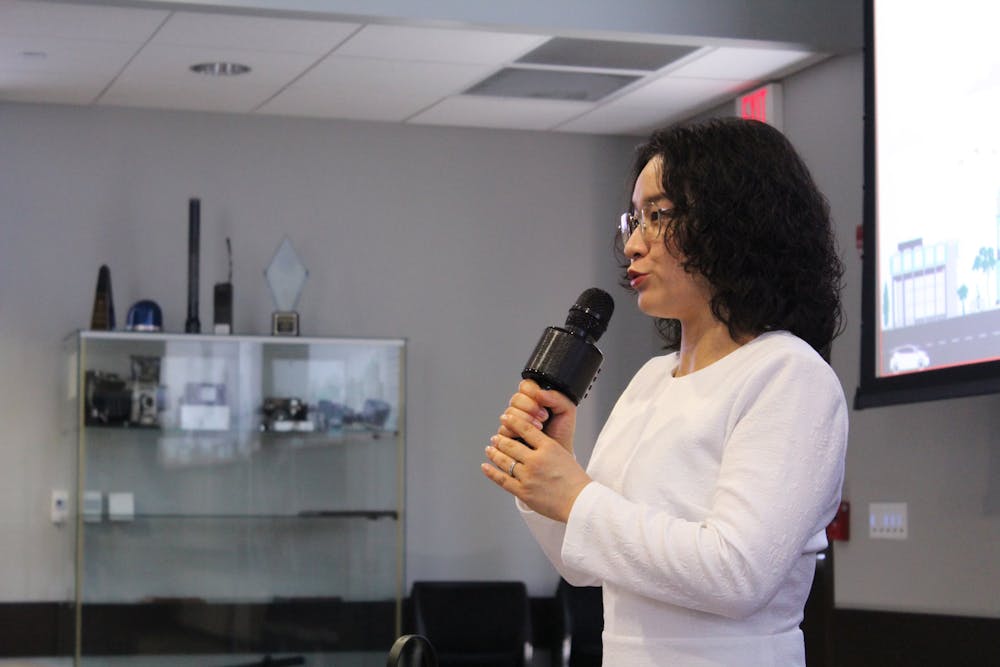A crowd of over 20 activists and concerned citizens gathered at the Gainesville Police Department Hall of Heroes Wednesday to watch Gainesville’s Chief Climate Officer Dan Zhu unveil the first draft of the city’s climate action plan.
The draft would improve a wide range of city functions under the separate tracks of climate mitigation and adaptation. Its 10 chapters included existing issues of transportation, energy, waste and water in addition to the future threat of extreme heat, food insecurity and limited resources.
The plan, which has the potential to be tweaked following community guidance, has been in development by Zhu since 2023.
Framed by the long-established goals of Zero Waste by 2040 and net-zero emissions by 2045, Zhu said the city’s priorities will be cemented by its ongoing climate vulnerability assessment. The county completed its own vulnerability assessment in July.
“By inviting input from neighbors, city staff are able to make sure the plan reflects the needs, concerns, and ideas of our entire community,” Zhu wrote in an email. “We will improve the plan based on the feedback and share the final version with the public before adoption, with a tentative target for early next year.”
Beneath the umbrella term of “mitigation,” Zhu said Gainesville will focus on implementing renewable energy, conservation programs and public vehicle charging stations while keeping city purchases green. It will also spearhead the further electrification of traditional RTS buses following a July $24.6 million Federal Transit Administration grant.
Initiatives stemming from “adaptation” put smart technology front and center, which included motion-activated street lights, solar panel benches and self compacting trash cans. Zhu said the creation of publicly accessible resource dashboards also fell into the mix, aiming to inventory tree coverage, carbon emissions and points of food accessibility across the city.
The city will also collaborate with Jacksonville and the Miami-Dade area to expand early warning systems for heat waves and tree canopy coverage for city cooling. Gainesville — which has been awarded 10 of its 12 desired state and federal grants — will continue drafting additional applications to help fund its 10-chapter plan, Zhu said.
While public comment reflected a sense of unified approval, the onlookers also offered several points of improvement.
“Steps to engage east Gainesville and to engage low-income communities … that’s probably what I would encourage them [the city] to keep adding,” said Natalie Triana, Gainesville chapter chair of the Climate Reality Project.
The 21-year-old UF political science senior expressed the importance of addressing flood resistance and disaster fortification in the plan, which she said could be considered on track.
“These things take time,” she said “As long as there keeps on being pressure to implement them, then I think for right now … they’re in time.”
Contact Rylan DiGiacomo-Rapp at rdigiacomo-rapp@alligator.org. Follow her on X @rylan_digirapp.
Rylan DiGiacomo-Rapp is the enterprise environmental reporter and a third-year journalism and environmental science major. She has also worked as the metro editor, enterprise political reporter and metro news assistant. Outside of the newsroom, you can usually find her haunting local coffee shops.






